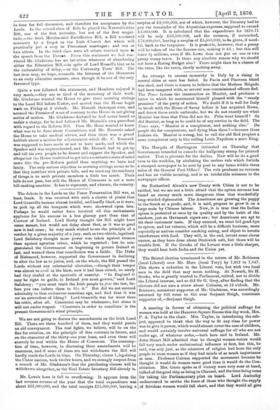The debate in the Lords on the Peace Preservation Bill
was, at least, frank. It was received with such a chorus of praise that Lord Granville became almost bashful, and hardly liked, as it were, to pick up all the bouquets which were showered upon him. Perhaps he would rather have received all this enthusiastic applause for his success in a less gloomy part than that of Coercer of Ireland. Lord Derby thought the Bill might have come sooner, but would not delay about that, as it was so good now it had come ; he very much wished to see the principle of a verdict by a given majority of a jury, such as two-thirds, legalized. Lord Salisbury thought more power was taken against treason than against agrarian crime, which he regretted ; but he con- gratulated the Government on beginning to govern Ireland at last, and warned them that conciliation was a foible. The Duke of Riehmond, however, supported the Government in declining to alter the law as to juries, and, on the whole, the Bill passed the Lords without any substantial alteration,—though their temper was almost to exult in the blow, now it had been struck, so sorely had they chafed at the spectacle of anarchy. " In England it may be right to guide, iu Ireland you must govern," said Lord Salisbury ; " you must teach the Irish people to fear the law, be- fore you can induce them to like it." But did we not succeed admirably in that endeavour sometime ago, and find that it was not an antecedent of liking? Lord Granville was far wiser than his critic, after all. Constraint may be wholesome, but alone it will not excite respect. Constrain in order to conciliate' is the present Government's wiser principle.


































 Previous page
Previous page